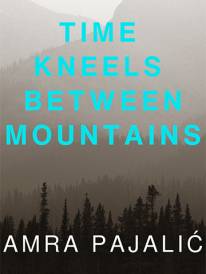Water Saving Tips For Australians | A Shareable Checklist
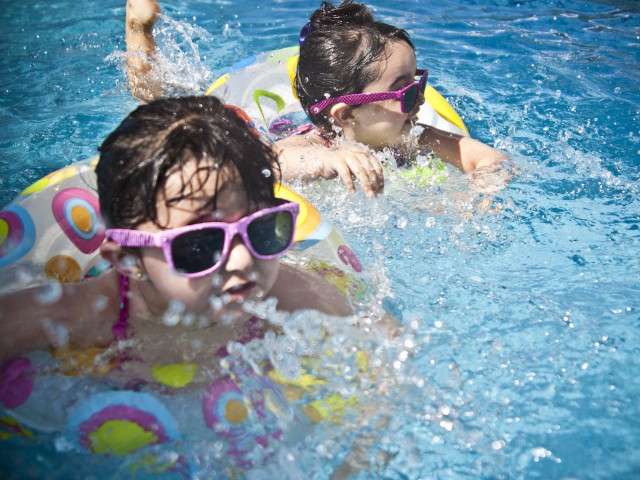
Find Out if Your Household Can Save Money. What's Your Score?
According to the CSIRO and the Australian Government Website: Climate Change in Australia, climate change is set to create warmer conditions with less rainfall over the coming decades. There will be more warmer days, fewer cool days and a decrease in cool-season rainfall. Rain that does arrive will come in intense short duration bursts. Eight of Australia's top ten warmest years on record have occurred since 2005. These conditions will continue to stress the ecosystem, agriculture as well as major cities and towns. Many municipalities and local governments around Australia have fostered water conservation initiatives, advertising and awareness programs, but there's more that we can all do to prepare for the times ahead.
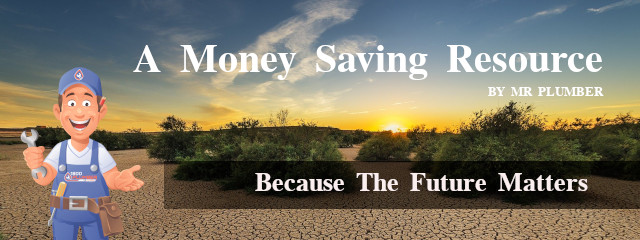
- The Water Saving Checklist | How Does Your Residence Stack Up?
- Water Saving Tips | Some Simple Solutions
- Water Conservation Lifestyle | Awareness is Key
The Water Saving Checklist | How Does Your Residence Stack Up?
We've teamed up with Mr Plumber, based in Ringwood, Melbourne to create an eye-opening, shareable, water saving awareness checklist. Our aim is to educate people and create water saving awareness. With the knowledge you'll gain from perusing our checklist, you'll be set to put on your cape (along with your flippers, snorkel and goggles) and make a splash into the interwebs to help create more water saving superheroes! How does your water saving knowledge stack up against your family and friends? Are you interested to find out? Well, lets get started.
--Copy Below Here--
What is Your Water Saving IQ? | A Checklist By Mr Plumber
#WaterSavingIQ #WaterConservation #WaterSaving
For an accurate score, please do not get up to check your house for anything on this list or look anything up online. It should be completed 100% with the knowledge you already possess as you sit in your seat. This checklist is to test your water saving awareness. So even though your house may very well pass some of the points in this test. The point of the test is to find out whether you're conscious of it. If you truly don't know the answer to any of these questions, without checking, you should answer "no".
- 1. Do you turn the tap off while you're bushing your teeth?
- 2. Are you sure there are no dripping taps in your house right now?
- 3. Are you 100% sure that your toilet does not have a slight trickle?
- 4. Do you consciously choose to use cold water for things that don't necessarily need warm water? Instead of holding your hand under the tap, waiting for the water to warm up?
- 5. Have you ensured that your garden hose fittings don't leak water? *Or outdoor watering systems.
- 6. Do you wash your car with a bucket instead of with a running hose?
- 7. Do you use the washing machine only when you have a full load?
- 8. Do you know what an "aerator" is?
- 9. Followup question: Do you know if your house has aerators?
- 10. Do you know how to know if your house has leaks? Even if you can't visually see any leak? This is not a trick question.
- 11. Do you know where the water meter is on your property?
- 12. Do you peel your vegetables in a tub or sink instead of under running water?
- 13. Do you clean your razor in a tub or sink, instead of under running water?
- 14. Are you mindful not to use your toilet as waste disposal unit? Ie: Not flush for single tissues, wipes or cigarettes?
- 15. Do you collect grey water or water that you're waiting to heat up, wit a bucket. Ie: Such as in the shower?
- 16. Are your appliances (dishwasher, washing machine) water efficient? If you don't know, mark this as a "no".
- 17. Do you have a water efficient toilet? If you don't know, mark this as a "no".
- 18. Can you think of one way to make a non-water efficient toilet more water efficient?
- 19. Does your shower have a water saving shower head?
- 20. Do you collect water on your property? With either water tanks or even with strategically placed buckets or tubs?
Read the Full Article:
https://www.female.com.au/water-saving-tips-australia.htm
RESULTS: How many times did you answer "YES"?
- 1-3 OK, um.. yeah, you kind of need to read our article very thoroughly! Preferably more than once.
- 4-7 There's always hope for improvement, but wow -- glad you're the one that has to pay YOUR water bills!.
- 7-10 Well, your knowledge could be worse, but you can still improve quite a bit.
- 11-14 You're actually not doing too bad. With a tad bit more effort, you could be a great water saving ambassador.
- 15-18 wow! Great! What a fine example you are to the rest of us. Keep up the great work!
- 19-20 What a LEGEND! Someone should erect a national water saving monument in your name!
--Copy Above Here--
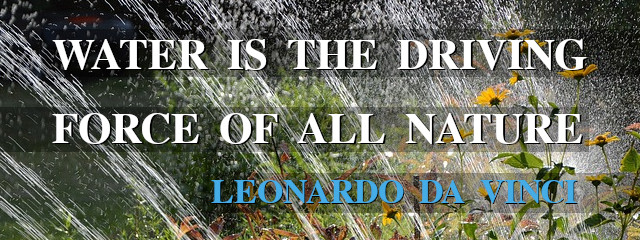
Water Saving Tips | Some Solutions Regarding the Checklist Above!
- Do not run the tap while brushing your teeth. Keeping a tap running while brushing your teeth can waste up to 10 litres of water per minute.
- A tap or shower that drips 100 drips per minute wastes 33 litres of water per day. That's more than 12,000 litres per year.
- Trickling toilets can waste thousands of litres of water per year. Sometimes the trickle is slight and hard to notice, but it is definitely something to be aware of.
- If warm water is not required, try to avoid the temptation to unnecessarily run a tap until warm water arrives.
- Don't buy cheap garden fittings. They're renowned for leaking. Buy a decent brand that won't squirt water in every direction from the fittings when the tap is turned on (if they don't pop off all together).
- It's ok to use a hose when washing your car, but wash the car with a bucket of soapy water first. Then make sure your hose has a proper nozzle (so the hose isn't running when you're not using it) and quickly rinse the car off (with the hose) when you're finished.
- It might require a little more planning, but try to set your washing on days when you've accumulated enough laundry to do a full load of washing.
- An aerator is a device the screws into a faucet and causes it to add bubbles to the water. So less water is used.
- To check if your house has leaks, to go the water meter and turn it off and record the number. Make sure all taps are turned off for 2 hours. Then come back and check the number. If the number is higher, you've got a leak problem.
- You should know where the water meter is on your property, just in case your property springs a leak. Leaks can cause a lot of damage with high repair bills.
- It is not necessary to peel vegetables under running water. A tub or a little water in a clean sink will do the job just fine. Plus, vegetable particles will be less likely to find their way down the drain to cause blockages.
- A surprisingly small amount of water is needed to rinse a razor. Even a glass of water will work just fine. There's no need to leave a tap running while you're using a razor.
- It's common for people to throw a single wipe, tissue, cigarette or other rubbish into a toilet and then flush the toilet. Yeah, don't do that.
- Even if you run a shower water for 30 seconds as you wait for water to heat up, you can collect quite a bit of water for the garden in a tub. Or even better, you might consider installing an instant hot water system.
- Dishwashers actually save more water than doing dishes by hand. There are also very water efficient dishwashers and washing machines available.
- Upgrade your old single flush toilet to a more efficient duel flush toilet. However, be aware that the actual toilet will usually need to be upgraded along with the cistern.
- An affordable way to make a toilet that's not duel-flush more water efficient is to place something inside the cistern, such as a bottle full of water. This will reduce the capacity and save a lot of water over time.
- Water saving shower heads are affordable, easy to install and great for saving water. They also aerate the water too, making the flow feel more full.
- Many homes have nooks and crannies where extra water flows off the top of structures. This water can be strategically collected using buckets or drums and used for watering the garden. However, be careful not to create a breeding ground for mosquitoes.

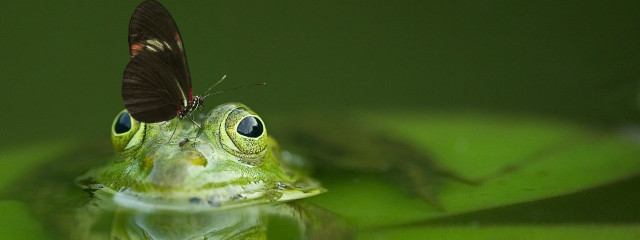
Make Water Conservation your Lifestyle | Awareness is Key
As water becomes more scarce, water bills around Australia will most certainly rise. So lets discuss some in depth water saving tips for Australia. There are a myriad of water saving techniques and water saving facts that many people don't even know about and may not have even considered.
Take Advantage of Water Saving Technologies
A tap or shower that drips 100 times per minute wastes 33 litres of water per day. That's more than 12,000 litres per year. Showers make up around 25% of total household water use, so there are a lot of water savings to be created in the bathroom. Keeping a tap running while brushing your teeth can waste up to 10 litres of water per minute. You can save tens of thousands of litres of water per year by switching to a water efficient shower head, but cutting your shower time by just two minutes can result in a water saving of up to 30%. One great way to save heaps of water in the shower is to lather up with the water off and the rinse afterwards. This method of showering can reduce the water usage by 50%. By collecting shower water in a bucket, while you're waiting for it to warm up, to use for your plants and garden can save 5 litres every 30 seconds. A bath can use 5 to 10 times more water than a shower. However, if you do take a bath, try to use the water in your garden.
There are Many Ways to Save Water
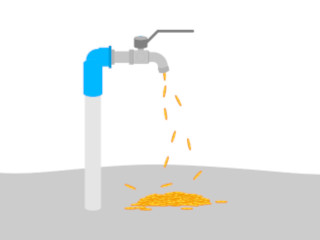
Ninety five percent of all water that enters a residence is flushed right back down the drain. The average toilet uses around 20% of the water in the average house. So by using a water efficient cistern or by placing a bottle of water in an older cistern, a lot of water can be saved. Upgrading your single flush toilet to a dual flush system can save up over 500 litres per week. Water aerators are easy to install yourself if your faucets have the right fittings. Otherwise, you'll need to call a plumber for help. Leaky taps, toilets, appliances and sprinklers can account for a lot of wasted water over time. The important thing to do is to be aware of the problem. If you aren't aware that there's a problem, you can't fix it.
Water Saving Appliances
Be sure to fill the dishwasher before turning it on. This will save both water and electricity. If there are items that you need to use again, give them a quick hand wash so you can use them. It's not necessary to run a half filled dishwasher just because you need one or two items.
There are many ways to use less water while doing the washing. Washing machines can use a lot of water, so it can really pay off to invest in a water efficient model. Always wait until you have enough clothing for a full load of laundry before doing the washing. Don't be tempted to use the washing machine for only a few items, just to get washing out of thee way. If you really need to was a few items, be sure to set the water level to a smaller amount to match the load. By purchasing water efficient appliances, you'll find that they're also usually energy efficient also, which will save you on electricity costs.
Save Water in the Garden
When watering the lawn, be sure to water in the morning and/or evenings. If you water in the middle of the day, it will just evaporate. Make sure watering systems are directed at grass and plants, not walls and paths. Also, mow your lawn to a greater height and it will retain more moisture and be less likely to shrivel up and become parched. The more lush your grass is, the less water it needs to stay lush. If you plant native plants, they'll also require less water.
If you're experiencing leaks, it is important that you contact a reputable plumber. If you live in the Melbourne area, call Mr Plumber for a leak detection audit.
References
Future Climate - CSIRO: https://www.csiro.au/en/Research/OandA/Areas/Assessing-our-climate/State-of-the-Climate-2018/Future-climate/
Climate Change in Australia: https://www.climatechangeinaustralia.gov.au/en/impacts-and-adaptation/nrm-regions/
MORE



